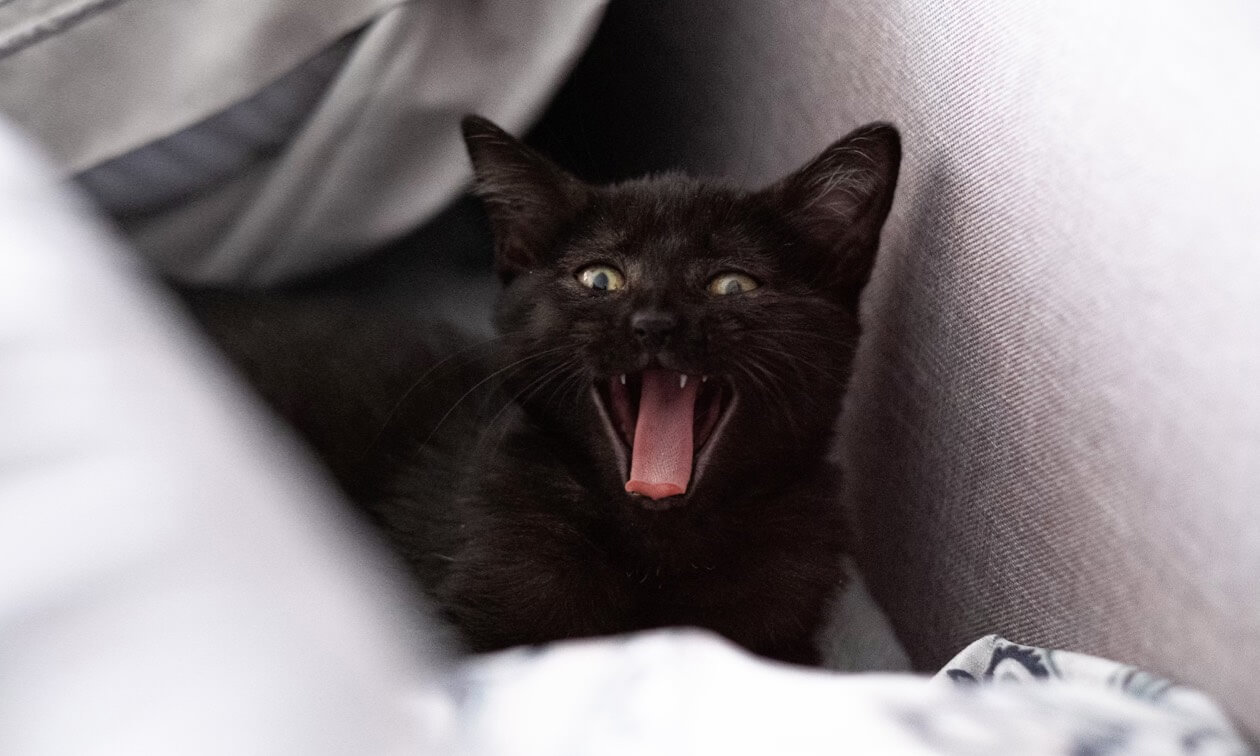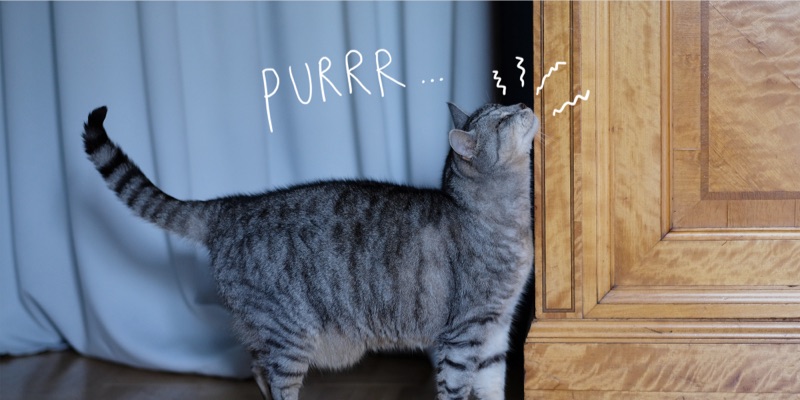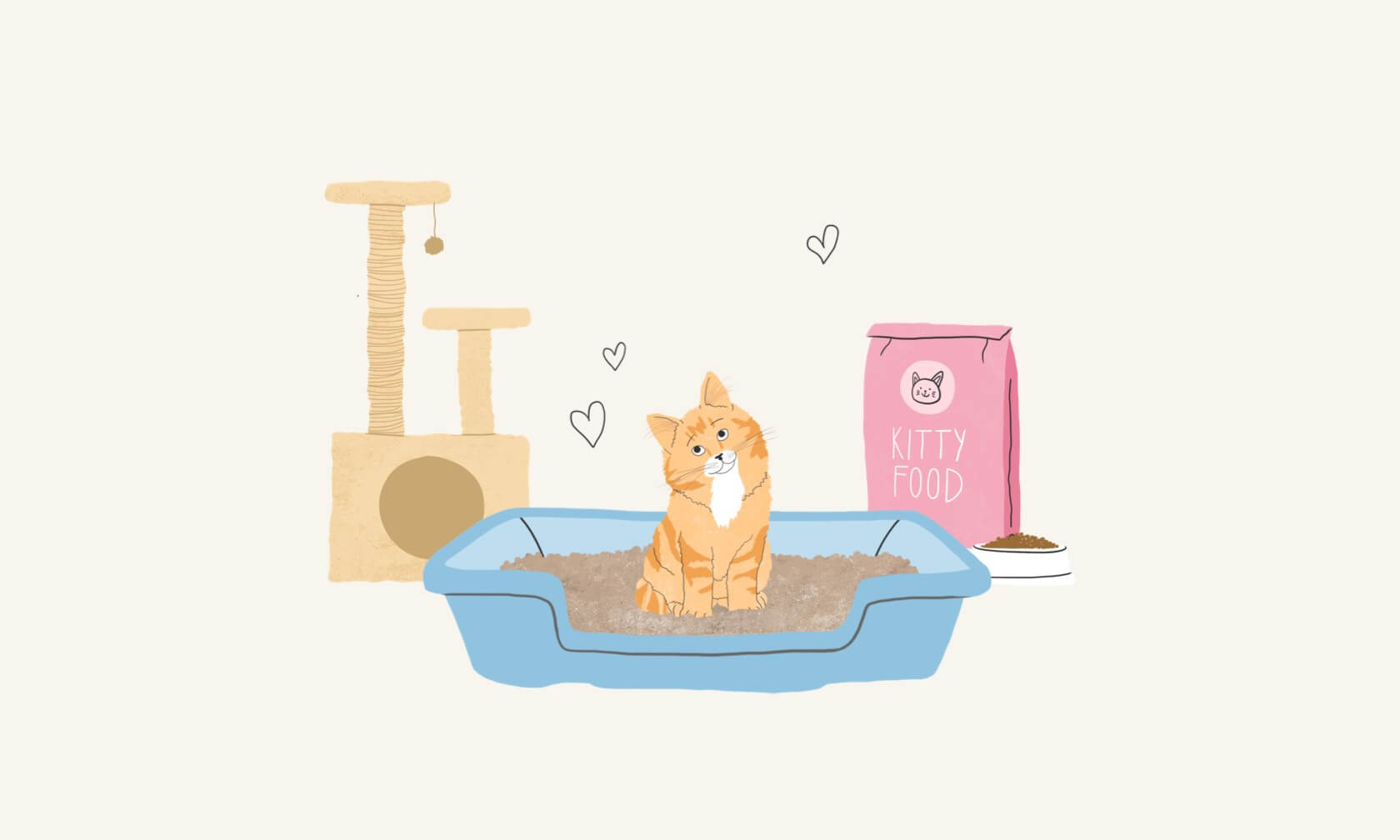Kittens are cuddly and adorable, but they also have absurdly sharp teeth and claws. So when your kitten gets playful and gives you a little bite, it can hurt!
Every kitten will bite. How you respond helps determine how much damage they can do and, more importantly, whether this behavior will turn into a long-term issue. With proper management, you can quickly work through your kitten’s biting phase unscathed
Why Do Kittens Bite?
We have to remember that kittens are just baby cats. Cats are predators, and also prey (like in the wild). Because of this, teeth play a major role in their safety and survival.
Once your kitten is mobile, they’re in training mode for about the first year of their life. It’s all about learning how to “cat.” They’re born with instincts like hunting, climbing, and digging — but they have to learn how to do those things well.
A fearful or defensive cat is also likely to bite as a means of protection. While your kitten may be fearless in some things, others can be quite scary, and a bite may be the result.
If biting gets a reaction from you, it becomes a way for your bored kitten to have some fun.
A kitten may bite as a way of saying, “no.” They may not feel well or have an injury that leaves them not wanting to be touched. Play may be too rough. Or maybe they’re just not in the mood and need a break.
Like puppies and human babies, kittens also explore new things with their mouths. Chewing can also soothe sore gums during the teething process from about two weeks to seven months old.
How To Stop Kittens From Biting
Your first step is prevention. Because kittens have an innate need to bite, you must provide acceptable opportunities to meet that need (otherwise, your chances of stopping the inappropriate biting are slim). Provide them with stuffed kicker toys, chew toys made specifically for kittens, and toys that mimic prey like furry mice. Make sure any toys are appropriate for their age.
Because biting is a natural behavior for kittens, prevention alone may not be enough to curb this behavior.
What to Do When Your Kitten Bites
You can expect the biting instinct to kick into high gear from about nine months old to one and half years old as your cat moves through their peak play aggression window. A young kitten needs to learn what’s acceptable and how hard they can bite without causing pain before they get bigger and more intense with play.
If your kitten bites during play or to try and get your attention:
Immediately and Neutrally Disengage
You want them to learn that all the fun stops when they bite. Don’t talk, look at them, or make a big deal about leaving. Your kitten will see all of that as engagement. Instead, look away, stay quiet, and get up and leave with as little action as possible. Wait a couple of minutes, and then give your kitten an acceptable outlet for their need to bite, like a stuffed kicker toy.
Avoid Yelping, Jerking Away, or Making Big Movements
Your kitten is learning to hunt. Vocalizing and trying to flee (or fight back) is exactly what prey would do. Those actions from you can turn their play aggression up a notch.
If Your Kitten Has Latched on and Doesn’t Want To Let Go
You or a buddy can try draping a towel or blanket over them gently. This is often enough to relax their grip and gives you a safer way to pick them up and free yourself.
You can also try lightly tossing something across the room. You’re not trying to scare the kitten — you just want something to grab their attention and pull their focus from you. They mustn’t see this as play. You don’t want to reward them for biting, so toss the item from outside their sightline.
Give them a little time to calm down, and then provide an appropriate “hunting” activity with a short play session or kicker toy.
If your kitten bites due to fear, anxiety, being overhandled, or other behavioral issues, there are several ways to help reduce their biting.
Identify Triggers
Understanding what’s causing the aggression (the trigger) is important. You’ll want to eliminate triggers where you can. For example, if your kitten gets aggressive when you try and rub their belly, they may be telling you they don’t like that. Respect the boundary, and they won’t have reason to bite.
For those triggers that can’t be removed, like fear of other pets or loud sounds, you can work with your kitten to desensitize them slowly and positively. When the fear is removed, the aggression should subside.
Provide Natural Ways To Reduce Stress
Make sure you’re meeting all your kitten’s basic needs. The first step is to provide plenty of easy access to key resources like food, water, litter boxes, high perches, hiding spots, and resting spots. Play and enrichment are also vitally important to keep their minds and bodies active, reducing stress in the process.
Use Cat Calming Pheromones
These are available as sprays, collars, or plug-in diffusers and can help kittens adjust to new environments and experiences. Ask your veterinarian for their recommended brands.
Work With a Professional
A certified feline training and behavior specialist can work with you to figure out what’s upsetting your kitten and teach you the training techniques to help them overcome it.
What Not to Do When Your Kitten Bites
Learning what not to do when your kitten bites is even more important than learning what you should do. The wrong response can increase your kitten’s desire to bite. Punishing a kitten or cat for biting can slowly turn play aggression into fear and defensive aggression, which is harder to resolve. It can also be damaging to your relationship.
Regardless of why your kitten is biting, DON’T:
- Use physical punishment
- Yell, clap, or make any loud sound that may scare them
- Use aversives like canned air or squirting with water
- Push them away forcefully
If your kitten is biting as part of rough play, you should also avoid:
- Using your hands and feet as toys
- Roughhousing (unless you’re using an appropriate toy and your hands are out of the picture)
- Pulling away quickly or moving your limbs wildly to try and keep them away from the kitten
If your kitten is biting out of fear, try not to:
- Force them into scary situations
- Corner them so they feel they have no escape and must fight
ZPC-01813R1





